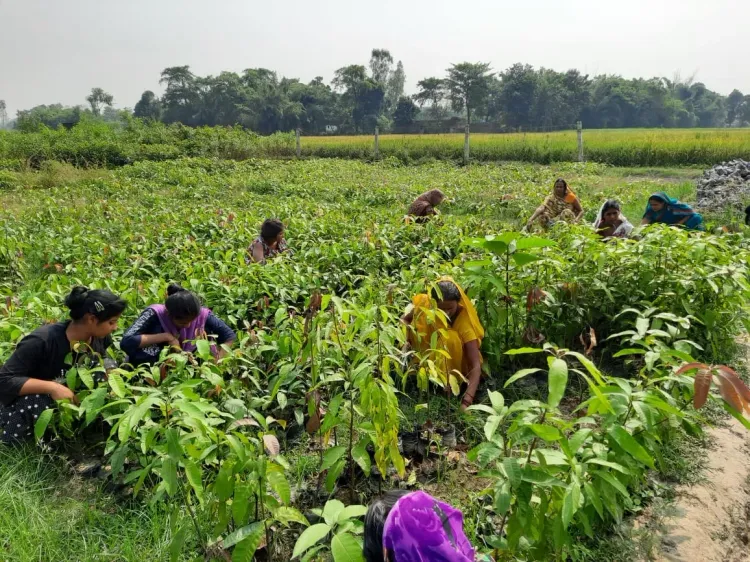Could the India-UK Trade Deal Transform Agriculture?

Synopsis
Key Takeaways
- Farmers are optimistic about the India-UK FTA's potential to enhance agricultural practices.
- The FTA guarantees zero-duty access for 99% of Indian exports.
- Shifting towards more profitable crops will be beneficial for farmers.
- Improved access to the UK market will promote Indian agricultural products.
- The agreement is expected to increase bilateral trade by $34 billion.
New Delhi, July 24 (NationPress) Farmers expressed their enthusiasm on Thursday regarding the India-UK Free Trade Agreement (FTA), deeming it a substantial advancement for Indian agriculture and a pivotal moment for the farming sector.
Gurmeet Singh, a farmer who weighed in on the agreement, emphasized that it will not only elevate incomes but also encourage farmers to shift from conventional cropping methods to more lucrative options such as horticulture and oilseed production.
"This is an excellent decision. It will assist us in addressing crop-related challenges and the issue of water scarcity. By cultivating high-quality fruits for export, we can achieve better financial returns. Crops like mustard and soybean will also yield significant advantages," Singh informed IANS.
The landmark trade agreement, signed by Prime Minister Narendra Modi and UK Prime Minister Keir Starmer, guarantees zero-duty access for 99 percent of Indian exports, encompassing a diverse array of agricultural goods.
This is anticipated to enhance price realization for Indian farmers and align their products with European competitors in the UK marketplace.
Singh pointed out that numerous farmers remain trapped in the cycle of cultivating cumin seeds and sugarcane, resulting in stagnant revenue.
Another farmer remarked, "Now, with improved prices available through exports, we can delve into more profitable crops. It’s time to break free from the same crops repeatedly."
He further highlighted that endorsing oilseed crops will alleviate pressure on water resources and promote sustainability.
"Export-focused crops like mustard, soybean, and fruits will not only uplift our income but also contribute to India’s overall progress," he added.
The agreement is also poised to unlock the UK market for horticultural products, featuring reduced tariffs and expedited regulatory approvals.
"With enhanced access and increased competitiveness, Indian farm exports, including spices, fresh fruits, processed foods, and oilseeds, will now connect with a broader global audience," stated another farmer.
Signed during PM Modi’s visit to the UK, the FTA is projected to boost bilateral trade by approximately $34 billion and strengthen India’s economic ties with one of the world's leading economies.










